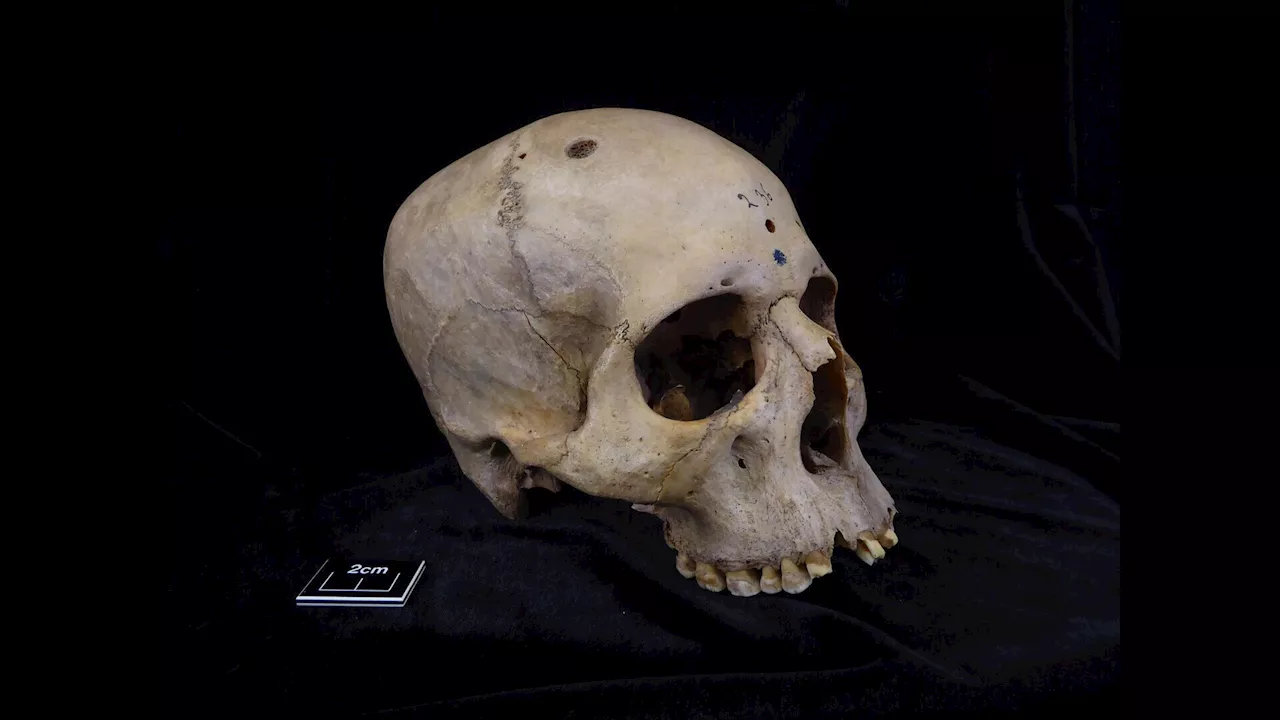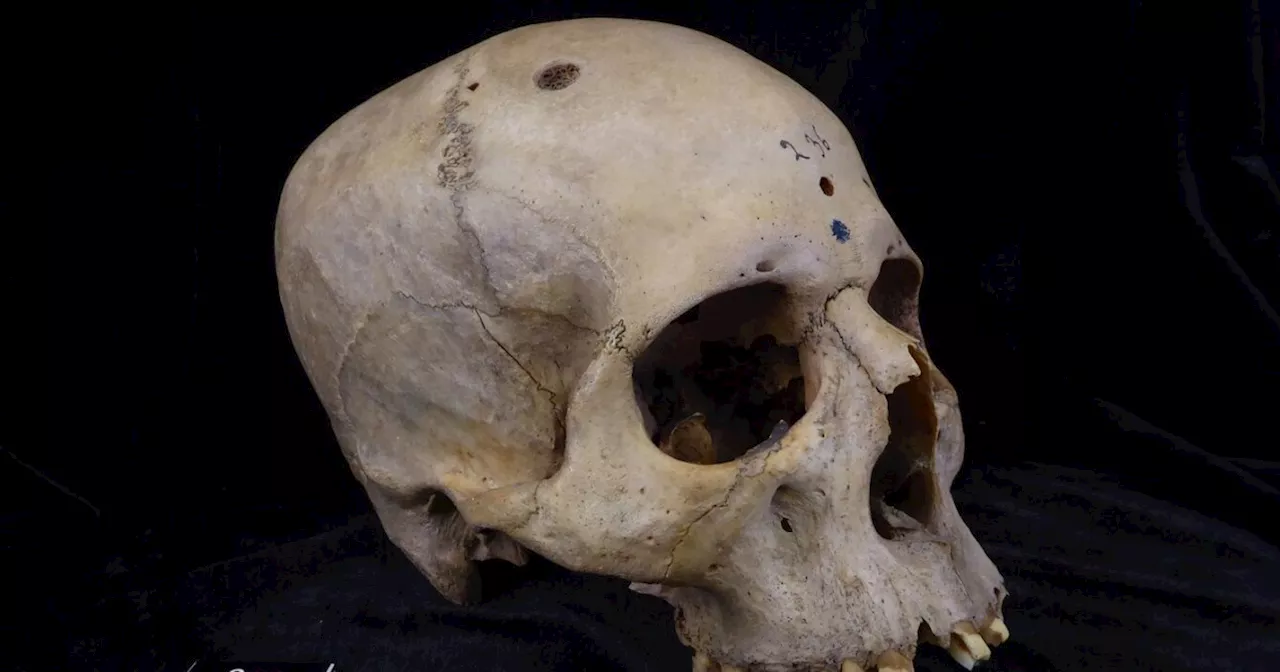A team of European researchers found cut marks near lesions on the skull of an Egyptian man dating back thousands of years. The marks suggest a form of cancer treatment.
The Sept. 20, 2018 photo shows human skulls and bones from the battle of Tollensetal about 1250 BC. displayed at an archeological exhibition at the Martin-Gropius-Bau Museum in Berlin. A team of European researchers found cut marks near lesions on …
The older skull, belonging to a man in his 30s, had signs of a tumor as well as around 30 smaller metastasized growths — and cut marks around them. While the ancient Egyptians are known to have treated cranial fractures, used dental fillings, built prosthetics and treated traumatic injury, the skulls offer new evidence that they knew about and tried to treat cancer.
The second skull, belonging to a woman in her 50s, showed signs of cancer, which was not treated, and of successful treatment for a close-range traumatic weapon injury.
United Kingdom Latest News, United Kingdom Headlines
Similar News:You can also read news stories similar to this one that we have collected from other news sources.
 'Extraordinary' 4,000-year-old Egyptian skull may show signs of attempts to treat cancerFrom ancient texts we know that—for their times—the ancient Egyptians were exceptionally skilled at medicine. For example, they could identify, describe, and treat diseases and traumatic injuries, build protheses, and put in dental fillings. Other conditions, like cancer, they couldn't treat—but they might have tried.
'Extraordinary' 4,000-year-old Egyptian skull may show signs of attempts to treat cancerFrom ancient texts we know that—for their times—the ancient Egyptians were exceptionally skilled at medicine. For example, they could identify, describe, and treat diseases and traumatic injuries, build protheses, and put in dental fillings. Other conditions, like cancer, they couldn't treat—but they might have tried.
Read more »
 Animals self-medicate with plants—a behavior people have observed and emulated for millenniaWhen a wild orangutan in Sumatra recently suffered a facial wound, apparently after fighting with another male, he did something that caught the attention of the scientists observing him.
Animals self-medicate with plants—a behavior people have observed and emulated for millenniaWhen a wild orangutan in Sumatra recently suffered a facial wound, apparently after fighting with another male, he did something that caught the attention of the scientists observing him.
Read more »
 Animals Self-Medicate With Plants − Behavior People Have Observed And Emulated For MillenniaThe term zoopharmacognosy – “animal medicine knowledge” – was invented in 1987.
Animals Self-Medicate With Plants − Behavior People Have Observed And Emulated For MillenniaThe term zoopharmacognosy – “animal medicine knowledge” – was invented in 1987.
Read more »
 Tree rings reveal summer 2023 was the hottest in 2 millenniaSascha is a U.K.-based trainee staff writer at Live Science. She holds a bachelor’s degree in biology from the University of Southampton in England and a master’s degree in science communication from Imperial College London. Her work has appeared in The Guardian and the health website Zoe.
Tree rings reveal summer 2023 was the hottest in 2 millenniaSascha is a U.K.-based trainee staff writer at Live Science. She holds a bachelor’s degree in biology from the University of Southampton in England and a master’s degree in science communication from Imperial College London. Her work has appeared in The Guardian and the health website Zoe.
Read more »
 Temperatures measured during summer 2023 'unparalleled' to past 2,000 years, researchers sayScientists looked to tree rings for historical climate data over millennia.
Temperatures measured during summer 2023 'unparalleled' to past 2,000 years, researchers sayScientists looked to tree rings for historical climate data over millennia.
Read more »
 Ancient Egyptian skull shows oldest attempt at cancer surgeryPatrick Smith is a London-based editor and reporter for NBC News Digital.
Ancient Egyptian skull shows oldest attempt at cancer surgeryPatrick Smith is a London-based editor and reporter for NBC News Digital.
Read more »
